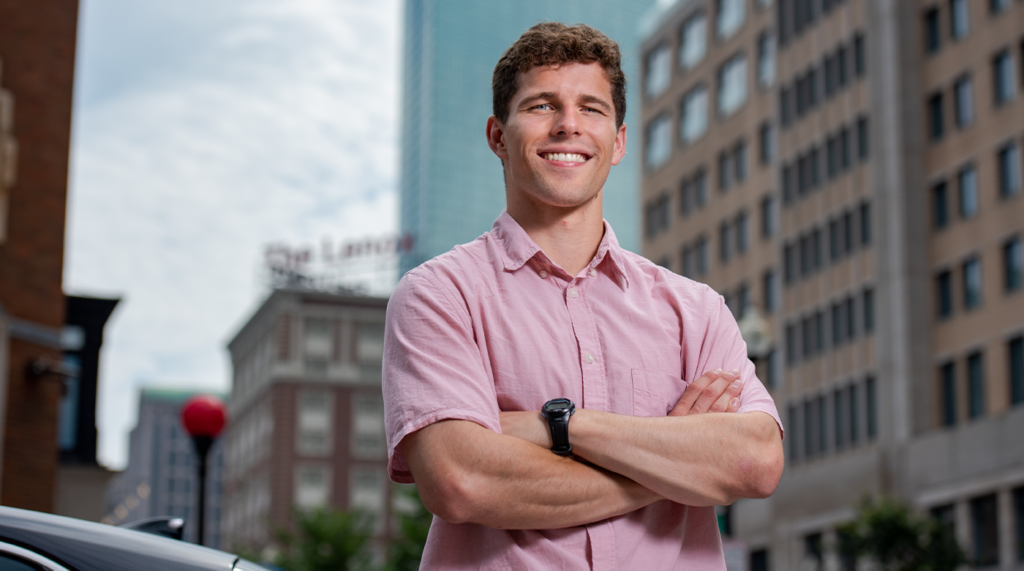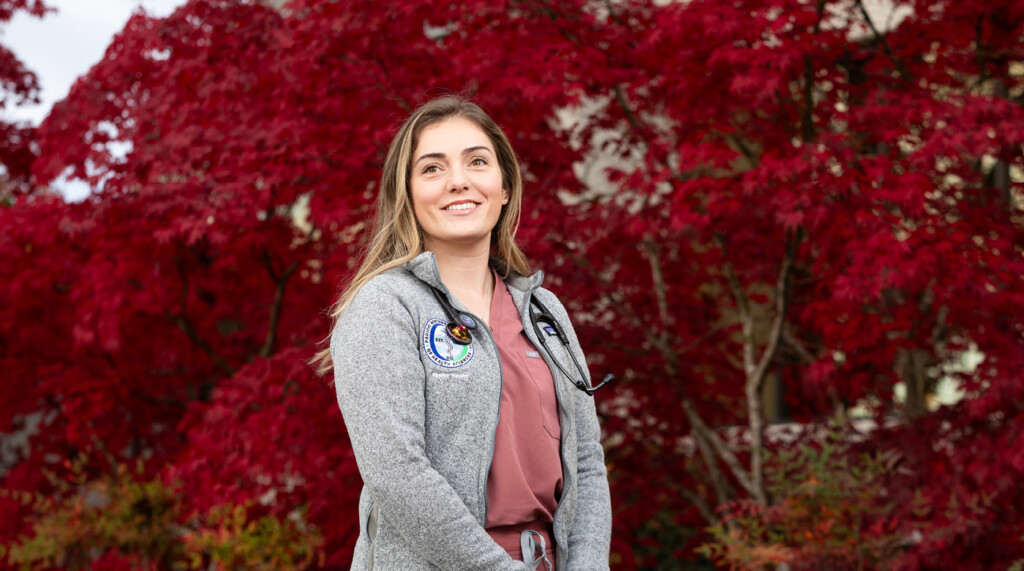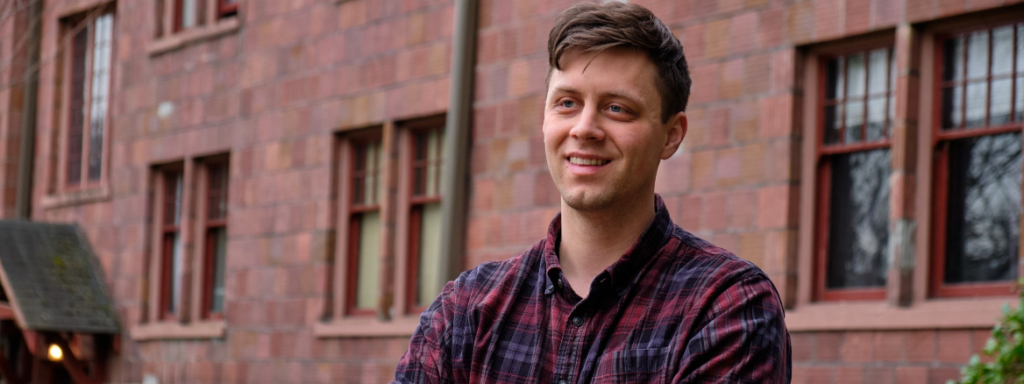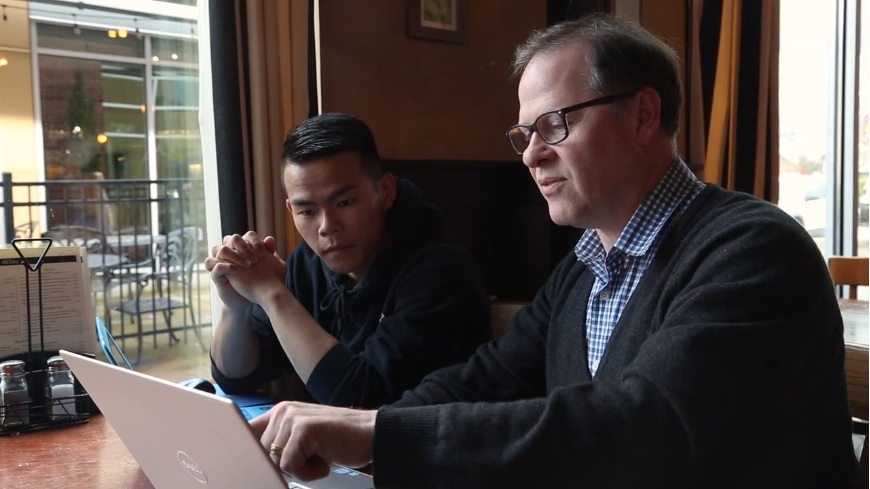Page 39 • (630 results in 0.041 seconds)
-

Since its inception two years ago, a total of five students have graduated with their graduate kinesiology degree from PLU. We had the opportunity to speak with Matt Leslie from the first graduating class of the MSK program. Here’s what Matt Leslie had to say…
field of sport and performance psychology, was a gift. It opened my eyes to the standards of quality and ethics that are needed to work in this field.Advice for future MSK studentsIf you have an idea of what you want to do for your final project, start talking to faculty members as soon as possible. They will help you gauge the feasibility of your project, and you will learn early on who has the background, expertise, and interest to help you maximize your project’s impact. Read more: Check out more
-

Shelby Hatton (Murdock) ’17 always knew she wanted to become a doctor, but now that she’s in osteopathic medical school she’s still deciding on what kind of doctor. The challenge, she says, is that she’s enjoying every aspect of her studies. That’s no surprise, because…
ethics, medical skills and theory, research theory and techniques, and foundations of personalized medicine. These courses are not just designed for medical school, they are designed to fit students interested in a variety of health science fields. Did the PNWU MAMS program also support your transition to medical school? It did! For example, faculty members and program alumni help MAMS students throughout the process by reading application essays and helping with interview prep. The medical school
-

Hard work pays off. Networking is key. Relationships are everything. While this advice might sound cliché, people give it often, and for good reason. Just ask Pacific Lutheran University’s Keegan Dolan ’22. Dolan, a double major in philosophy and economics , is in the midst…
philosophy courses have been very helpful with the qualitative work that I’ve been assigned; the ability to craft an argument, as well as the ability to respond to possible objections to your position, have certainly served me well.” So what’s next for this PLU soccer and Ultimate Frisbee player who’s also debated in two Ethics Bowls? Dolan will be taking advantage of the university’s PLUS Year program, spending a fifth year soaking in life at PLU and hopefully study abroad at Oxford. He’s unsure what
-

Michael Halvorson ’85 was a technologist before he was a historian. His PLU undergraduate degree is in computer science and he worked at Microsoft for the first 10 years of his career. He spent the next 15 years writing books about software and emerging technology.…
those things have been over time,” he explains. “An analysis of innovation should look at human communities, economic issues, art & design, ethics, technology, and more. If you examine these elements in an interdisciplinary way, you can really assess the dynamics of change in society.” Halvorson teaches business and economic history courses in the history department, as well as classes on innovation and the history of technology. He has also continued publishing books, including the lively new
-

Shelby Hatton (Murdock) ’17 always knew she wanted to become a doctor, but now that she’s in osteopathic medical school she’s still deciding on what kind of doctor. The challenge, she says, is that she’s enjoying every aspect of her studies. That’s no surprise, because…
ethics, medical skills and theory, research theory and techniques, and foundations of personalized medicine. These courses are not just designed for medical school, they are designed to fit students interested in a variety of health science fields. Follow Shelby Hatton to PNWU!Each year there are six seats reserved for qualified Lutes in Pacific Northwest University of Health Sciences’ Master of Arts in Medical Sciences (MAMS) program. Shelby Hatton is one of many Lutes who have gone from PLU’s pre
-

TACOMA, WASH. (March. 2, 2020) — Jared Wright ‘14, political science and global studies double major, arrived at PLU eager to engage in community work and excited to study social justice. He didn’t have specific plans and didn’t know what it would all look like,…
, and now serves as a coordinator of Lutheran Community Services Northwest’s refugee resettlement program. “Looking back at my four years at PLU, it all makes sense,” Wright says. “I’m really grateful for my PLU experience because I feel like it truly did prepare me for the work I do now that is rooted in social justice and community.” Wright will be returning to PLU this week for the 9th Biennial Wang Center Symposium. He and four other alumni will discuss “Conflict, Peacebuilding, and the Ethics
-
A yearlong sabbatical in 2017-18 provided Dr. Brenda Llewellyn Ihssen, Dr. Michael Schleeter, and Dr. Seth Dowland with opportunities to rethink their courses and pursue scholarly interests.
additional strategies for meeting these goals. Dr. Michael Schleeter, Associate Professor of Philosophy, teaches and produces scholarship in the areas of ethics and political philosophy. During his sabbatical, he was able to take time to rest and restore as well as explore new topics that further extended his areas of expertise, including the role of biology and evolution in systems of ethics.Dr. Schleeter stated that this branch of philosophy includes humanity’s development of moral capacity over time
-

By Michael Halvorson, ’85 This week is Computer Science Education Week (Dec. 3-Dec. 9) in the United States. I helped celebrate on Monday at the Paul G. Allen School of Computer Science at the University of Washington in Seattle. The event was sponsored by Code.org…
was popularized by Ivan Illich in his 1973 book, Tools for Conviviality. It is still surprisingly relevant.) For high school students who become interested in computing, there are a wide range of subjects that they can study in college to think about the implications of computational thinking in industry and society. We’re really at the beginning of a surge in computer science, artificial intelligence, cognitive psychology, technical education, and the history and ethics of computing. Computer
-
Dr. Samuel Torvend spent his sabbatical during the 2019-20 school year researching environmental consciousness and sustainability in early medieval monastic communities. Early medieval monasteries were built to last, he emphasizes. “When these monastic communities were established, they did not think they were going to be…
progress.” Now that his sabbatical is over, Dr. Torvend is balancing his roles as a researcher and an educator. “Many times, “he said, “it’s been student questions or a students’ insights that have actually prompted me to move in a new direction in my research.” Dr. Torvend’s teaching has long touched on these topics, with courses in theology of nature and Jewish and Christian views on the environment. He has also sponsored a variety of conferences at PLU that focused on environmental ethics. In many
-
Professor Rings sits in the basement of his house in Downtown Tacoma explaining the difference between being online versus in the classroom during a global pandemic. The room is more dimly lit and quiet than a classroom, and the discussion feels homey. There was no…
, he taught three classes —A writing course on “Pop Philosophy,” a philosophy courses on “Ethics and the Good Life” and an International Honors course on “Empire, Agency, and the Arts.” Since the transition to online learning, Professor Rings has found that “it is nice to be able to share a lot of images and videos and audio in an interactive way… I really like that. There are some of the tools that are cool about Sakai.” Sakai has allowed professors to communicate with students about what will be
Do you have any feedback for us? If so, feel free to use our Feedback Form.


